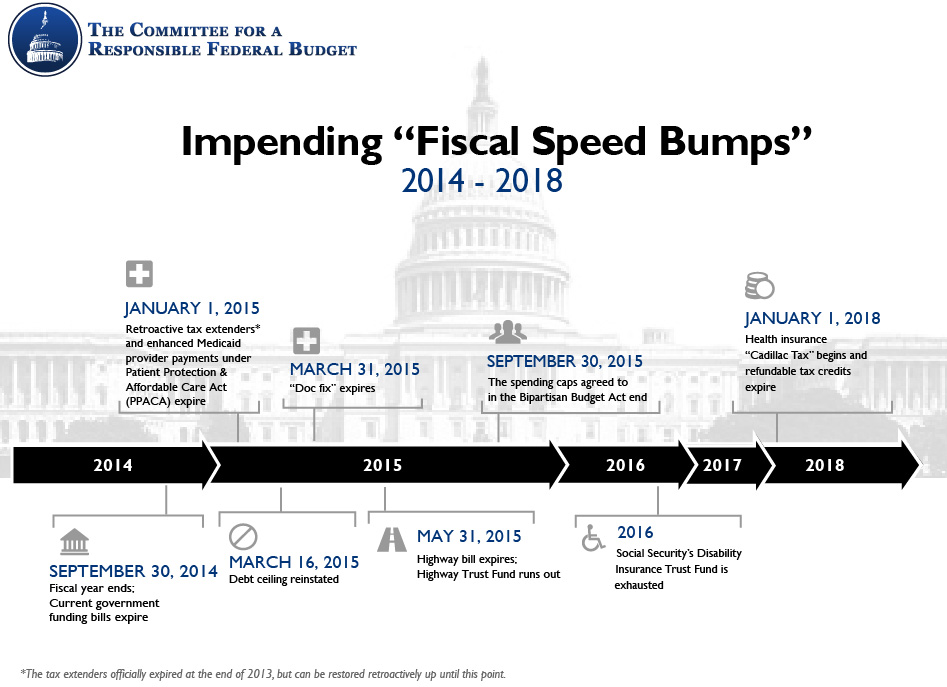Fiscal Speed Bumps Will Force Action Later This Year
Before leaving town for August recess, Congress passed additional VA funding and a short-term patch to the Highway Trust Fund. However, more deadlines are approaching quickly, and Congress will have many "fiscal speed bumps" next year – all of which present firm deadlines for action.
The end of the fiscal year is September 30. At that point, Congress needs to have passed appropriations bills or a continuing resolution for next year to fund the government. Since Congress has not yet passed any of the 12 appropriations bills and are only in session a little over two weeks in September, it seems likely that a continuing resolution will be needed to avert a government shutdown. (See Appropriations 101 for an explanation of the process).
Beyond that, there will be pressure to revive tax extenders, a package of over 50 tax breaks. Although they expired at the end of 2013, they can be reinstated retroactively without much difficulty if done this year. The House and Senate have taken different approaches to the extenders (though both would add to the deficit), but they would need to come to agreement before the end of the year.
Next spring, several of this year's extensions will expire: The debt ceiling will need to be raised when it goes back into effect on March 16, and Medicare provider payments will be cut by 24 percent unless a "doc fix" is enacted by March 31. By the end of May, Congress will need to shore up the Highway Trust Fund and re-authorize the fund's spending. As part of a long-term highway fix, Congress will either need to raise highway revenues or cut spending as we explained in our paper, Trust or Bust: Fixing the Highway Trust Fund.
Over the longer term, the Ryan-Murray budget agreement that had set two years of spending levels will run out at the end of September 2015. Additionally, the Disability Insurance Trust Fund will run out of money near the end of 2016, leading to a 19 percent cut for all beneficiaries if not addressed.
All of these deadlines are manageable if lawmakers stop the crisis-to-crisis cycle we've seen over the past few years. This year saw many short extensions that delayed issues until 2015. Lawmakers have given themselves time to deal with these policy deadlines in - we hope - a fiscally responsible way.
